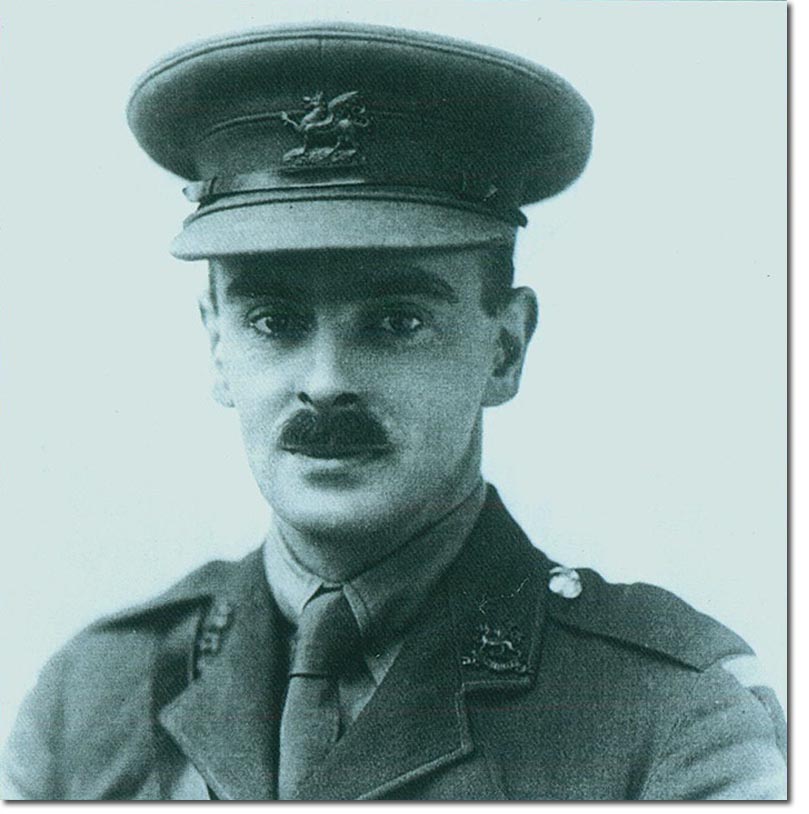|
|


|
|
Major Nicholson won the Military Cross three times, gazetted on 18.10.1917, 26.11.1917 and 7.11.1918 for carrying out difficult tasks showing bravery, initiative, cheerfulness, energy and powers of command. Only 168 other officers won two bars to their MC in WW1.
Aubrey Clifford Lidstone Nicholson was born in Australia, near Adelaide in July 1888. His father emigrated there to start up a paint manufacturing business. He returned to the UK to enlist in the 18th (Public Schools) Battalion of the Royal Fusiliers as a private soldier. He went to France in Nov 1915 and returned to take up a commission in the 7th Service Battalion the Buffs in Sep 1916. He reached his unit at Fabeck Trench on 4th Nov 1916 and experienced his first night of intermittent shelling. He is mentioned in the 18th Divisional History as 'a small slight man, who to the end of the war showed himself possessed of a greater spirit than his strength of body'. His steady nerves under adverse conditions may be attributed to his mother's food parcels which included phosferine tablets 'which will do much to strengthen your nervous system'. Nicholson had already been mentioned in despatches (Gazette 22.5.1917), and his first MC was awarded in respect of his taking command of C Company in an important relief action in early August 1917. The War Diary noted that the weather conditions were extremely bad at the time. In this he had to make his own recce by crawling out in daylight to make his dispositions. The operation, carried out in pitch darkness, was successful. Previous patrols had suffered fire from the flanks and failed. The action for which he won his second MC was the unsuccessful attack on Poelcappelle on 12.10.1917, an operation memorable for knee-high mud and the equally unsuccessful introduction of the leap-frogging method of advance. Nicholson, moreover, witnessed his leading elements struck down by a Royal Artillery barrage, which commenced late, one of several setbacks that accounted for the battalion losing 10 officers and 375 other ranks in killed, wounded or missing. The citation says: 'When the attack was held up by intense machine-gun fire and the bad conditions of the ground, he displayed splendid energy in reorganising elements of several platoons, exposing himself to heavy fire at close range with complete disregard of danger, He established a line under very difficult conditions and when his flank was exposed dealt with the situation in a very able manner, and successfully repulsed an attack. His gallantry and cheerfulness had a marked effect on those under his command.' His third and final MC was won for his outstanding bravery and leadership on 6.8.1918 when his actions were largely responsible for establishing the Brigade front. He relinquished his commission in 1921 and returned to civilian life as a risk assessor with Phoenix Insurance. During WW2 he was employed as an air raid Warden in Bexley. On one occasion he tackled incendiary bombs with a stirrup pump. He was a competent artist and was fond of books. He died in December 1962 aged 74. |
Armed Forces | Art and Culture | Articles | Biographies | Colonies | Discussion | Glossary | Home | Library | Links | Map Room | Sources and Media | Science and Technology | Search | Student Zone | Timelines | TV & Film | Wargames